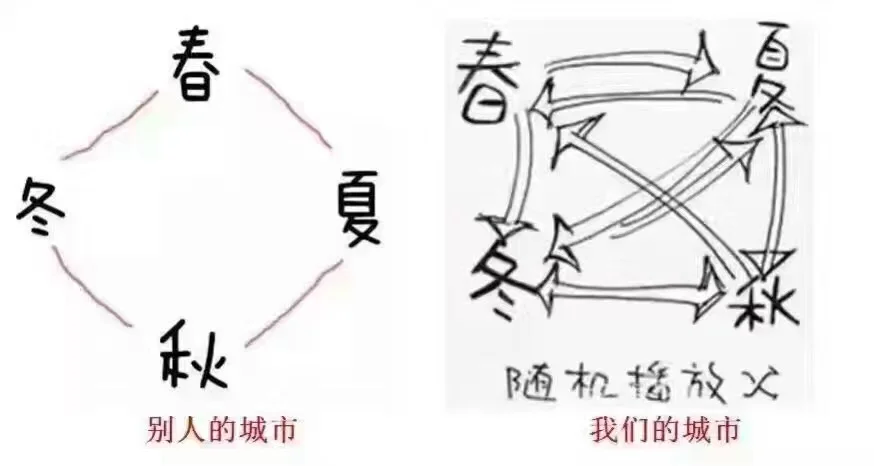Diego may Costa lotta Chinese money, but where exactly is he going?
Over the weekend, football fans all over the world were debating the latest transfer rumor that Diego Costa, the star striker of English Premier League club Chelsea, might be on his way to China. According to leaked information, the 28 year-old Brazilian-born Spanish national has been approached about a potential move that would see him earn a staggering £30million ($36million) a year. This comes hot on the heels of a stream of recent Far Eastern deals that have seen stars such as Carlos Tevez and Oscar (another Chelsea player) head to the Middle Kingdom for gigantic amounts of money.
While I also watched the story with interest, I have to admit to having noticed a different detail in the reporting of the story. Have a look at the following news report titles and see if you see the same thing that I noticed:
Diego Costa dropped by Chelsea after row over huge offer from China. - The Guardian
Antonio Conte warns Diego Costa 'money is not everything' as Willian becomes latest China target. - The Telegraph
Diego Costa owes Chelsea nothing. If he wants to go to China, the club should give him their blessing. - Joe.co.uk
'Diego Costa wouldn't think twice about moving to China'. - The Mirror
Diego Costa to China: The STAGGERING figures being offered to the Chelsea striker. - The Express
Your initial reaction may be that the writers at The Express are a little clickbait-driven when it comes to headlines - and you would be right. But that's not what I'm looking at. What I noticed immediately was one word; the favorite word of campaigning presidential candidate Donald Trump no less - CHINA. In every single one of these headlines, no attempt is made to explain which football club in China had made the offer, almost as if it was an unimportant detail.
Donald Trump loved China, as evidenced by his frequent use of the word.
Now you might think that it was just a matter of keeping the headlines short, attractive, and to the point. 'China' makes a much quicker and bigger impact on the readership than the name of some obscure club that most people outside of China would never have heard of. Being someone who writes headlines myself, I would nominally tend to agree. However, what was really surprising was that all the articles mentioned above also failed to name the club within the story itself.
The Guardian referred to 'a club in the Chinese Super League' while The Telegraph preferred to call it 'the cash-rich Chinese Super League'. The Mirror mentioned a bid 'from the Far East' while Joe.co.uk made no further reference to any details beyond the headline itself. The Express was the most surprising: not only did they fail to name the club, but even managed to apply the same generic logic to previously done deals where the club was already well-known, stating 'Chelsea sold Oscar to China earlier this month for £60million'.
Just a few of the headlines
Anyone reading the story without proper context, or those unfamiliar with the workings of international football, might be led to believe that Diego Costa, Oscar, and other such players are being sold to the Chinese national team, or perhaps to the league itself. If this sounds familiar to anyone, it may be because the United States' Major League Soccer works in such a way. Technically speaking, players at MLS clubs are owned and contracted by the league itself since the MLS corporation owns the clubs, which operate more like 'franchises' (hence the common American term for sports teams). However, the Chinese Super League does not operate like that - the clubs own the league that they participate in and the players that they contract, like most football leagues worldwide. Diego Costa will not belong to the Chinese Super League but rather he will belong to the individual team, much like he currently belongs to Chelsea, not the EPL.
The MLS offers a potential answer to the problem - in the earlier developmental years of America's top football competition when they were also cherry-picking talent from European leagues, players at the time were often described as receiving offers 'from the MLS' or 'from America'. Even earlier than that, a similar trend was gone through in the United Arab Emirates and players were similar described as heading 'to Dubai', 'to Abu Dhabi', or simply 'to the Middle East'.
David Beckham is likely to open his Miami 'franchise' in the near future, but he won't 'own' it in the same way that a European (or Chinese) owner might
It may then be the case that the lack of knowledge regarding individual Chinese clubs and the geography of China in general on the part of the typical Western reader, combined with the tendency of clubs in the CSL to frequently change names, leads to a need for news outlets to report big money deals that will take players 'to China' rather than dealing in specifics. To some extent, this trend has not entirely disappeared from media reports about MLS. However, this may not be the entire explanation. It is notiacbel that media sources have the same habit even when reporting other areas of news related to China.
Back towards the end of 2016, the tech news media was awash with reports that a Chinese company had finally released a smart home speaker similar to Amazon Echo (that news was also erroneous by the way, since the product had actually been released a year earlier). The headlines at the time took on a similar feel to the football stories mentioned above:
China now has an Amazon Echo-like device called the LingLong DingDong. - The Next Web
Behold China's answer to Amazon Echo: The LingLong DingDong. - Wired
China unveils its answer to Amazon Echo. - The Daily Mail
The company that released the speaker (named DingDong) was a firm called LingLong, themselves an offshoot of established online commerce platform JingDong, leading to the somewhat hilarious name 'JingDong LingLong DingDong'. I suspect that it may even have been the name more than the event itself that inspired so many Western news agencies to pick up the story. Nevertheless, the point once again was that the headlines do give readers an image of China as one contiguous whole, where tech firms, sports teams, and the government are all one giant entity, and in some ways this could be said to play on existing Western impressions of the (lack of) separation between the Chinese state and its business and civil communities.
Yes, it's called DingDong in both English and Chinese
I'm not here to proselytize for a complete re-arrangement of the press and how they report stories. There has always been a tendency in media to include less and less specific details about a story the further away from home that that story happens. I do, however, think that its important that newspapers and news websites do at least try to make some effort to explain that China is a complex place with many working parts. Not all companies are part of one single whole, just as not all football clubs are mere branches of a single league as they are in the United States. Those companies compete fiercely, and so do the football clubs. With the huge amount of investment in foreign talent, this coming season of the Chinese Super League could be the best yet, and in order to really enjoy it, it would be great if fans around the world could distinguish one club from another.
And just in case you were wondering - it was Tianjin Quanjian that made the offer. See map and crest below :)
My first book, a collection of funny and fascinating tales from my 10 years in China, Japan, and South Korea, is just days away from release. To be notified when it's available and about early bird special prices, sign up for my mailing list or follow me on Facebook or Twitter.






